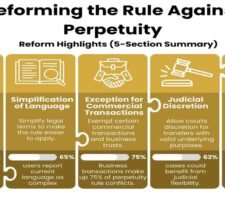The imagination of rape, often referred to as sexual imagination or forced sex fantasy, is one of the most reported sexual fantasies among men and women. Despite the disturbing name, it is necessary to understand that rape does not reflect the desire to experience or make a real sexual attack. Instead, it is a complex psychological experience that includes power dynamics, control, and deep emotional triggers—all in the context of consent and imagination.
What is the imagination of rape?
The imagination of a rape involves imagining a landscape where a person is forced into a sexual act, often against their desire, at least within the imagination. In most cases, however, the person who imagines this situation remains under the control of the landscape. It means that they determine roles, results, and emotional reactions, making it a contradictory, strong experience for some individuals.
This type of imagination is about dominance and presentation, not about violence or abuse of the real world.

Common Misconceptions
1. People who fantasize about rape want to be raped or want to rape others.
It is false. Most people with these fantasies have no desire for the real-life act.
2. Only women have rape fantasies.
>While the study suggests that women generally report the imagination of rape, men also experience these fantasies—sometimes from the victim’s point of view and sometimes as a prominent person. Inspiration and emotional references can vary widely between individuals.
3. Rape fantasies are a sign of trauma or mental illness.
Why do people have rape fantasies?
There are many psychological and emotional reasons why rape fantasies can attract one:
Desire to submit or control: Some individuals are evaluated by the idea of relinquishing control in a safe place, or vice versa, eliminating control.
Independence from responsibility: The fantasy of being “forced” removes the burden of sexual responsibility so that someone can find out lust without crime or shame.
Search for taboo: The human brain is often inspired by forbidden or dangerous scenarios—Tampi lets people detect these feelings without real risk.
Emotional intensity: These fantasies can intensify emotional or physical sensations, often associated with feelings of fear, surrender, or dominance.
Find the imagination of rape safely.
If you or your partner is interested in exploring non-consent with consent in real life, it is essential to prioritize open communication, trust, and security.
Large security measures include:
Explicit consent
Safe Words: Agree on a clear word or sign that will immediately stop the landscape when someone feels uncomfortable.
Aftercare: Spend time together after experiencing emotional and physical arguing. It confirms mutual respect and faith.
Final thoughts
Rape fantasy is a complex and profound misunderstanding. While the name alone can increase the discomfort, the reality is that for many people. These fantasies are about power dynamics and emotional liberation—not about real violence or disadvantages. With responsibility and full consent, the imagination of rape can be part of a healthy consensual sexual life.
The most important aspect is communication. Like any intimate task, understanding each other’s problems, desires, and limits is the basis for safety and mutual satisfaction.








